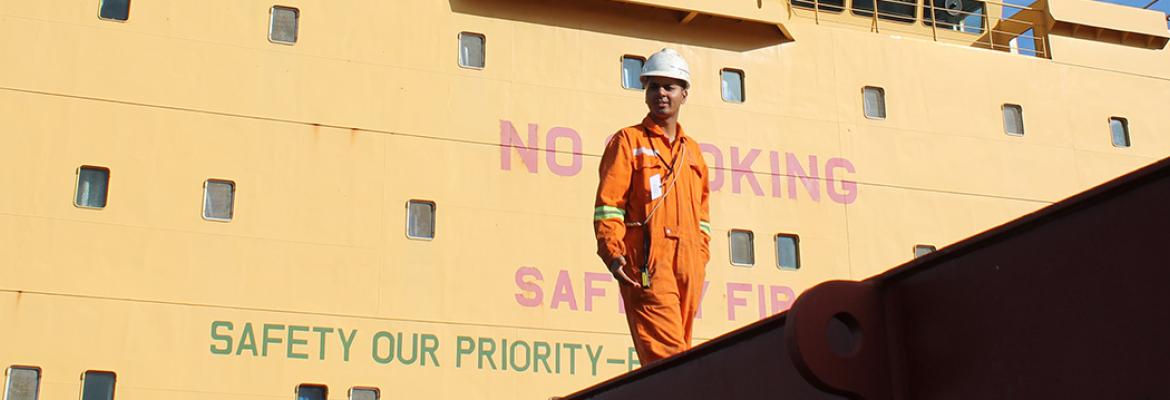
Published on Australian Maritime Safety Authority (https://www.amsa.gov.au)

You are considered international crew if you are working on an Australian or non-Australian vessel in Australian or international waters and you hold a certificate issued in accordance with the STCW Convention. You can hold either Australian citizenship, or citizenship of any other nation.
You must hold a valid certificate of medical fitness before you can apply for a certificate of competency or certificate of proficiency certificate of recognition.
Find out how to apply from within Australia and from overseas.
Read the Standards for the medical examination of seafarers and coastal pilots to find out about what you can expect when you attend a medical fitness examination.
You need to start your training by getting a Certificate of safety training. This an entry level certificate which you will need before you get any other certificate.
If you are an Australian working on a regulated Australian or non-Australian vessel in Australian or international waters you will need the appropriate certificate of competency, proficiency or safety. You can apply to us for a new certificate, get endorsements, or revalidate your current certificate.
Find out about other
We provide a list of training organisations, listed by state, and the STCW courses that they run.
Find a training organisation near you.
We have a list of examiner checklists and syllabus that you can use as study guides when you are studying for your international certificate.
Read the checklists and syllabus.
Apply to get an endorsement for the certificate you currently hold. Endorsements will enable you to carry out specific duties or functions on a regulated Australian vessel.
Find out more about endorsements.
If you hold a valid STCW certificate of competency, proficiency or certificate of recognition, you don’t need to get a near coastal certificate of competency to serve on an Australian domestic vessel. There are conditions that apply.
There are a range of requirements for service on an international fishing vessel. These depend on the size of the vessel, where it is operating and your certificate.
Find out the full details of these requirements.
Find out about maritime skilled migration to Australia.
We provide details of sea service requirements for an international certificate to help you apply for your sea service assessment.
Find out about calculating sea service for ratings, deck and engineer officers and what vessels are not deemed suitable.
We provide you with a list of the different forms you may need.
Find out about our fees for examinations and certificates and how to pay.
We are responsible for seafarer health and safety issues on prescribed vessels engaged in trade on international voyages. We also ensure the safety of seafarers on board foreign flagged ships in Australian ports.
You can make a complaint to us about your treatment on board the vessel you are working on under the Maritime Labour Convention. Use the Maritime Labour Convention on-shore complaint form.
Marine notices provide information relevant to the shipping and broader maritime community on a range of important issues. While marine notices have no legal standing, they provide important safety-related information, general guidance, or details about forthcoming changes to legislation.
View the list of marine notices or subscribe to receive emails about new marine notices.